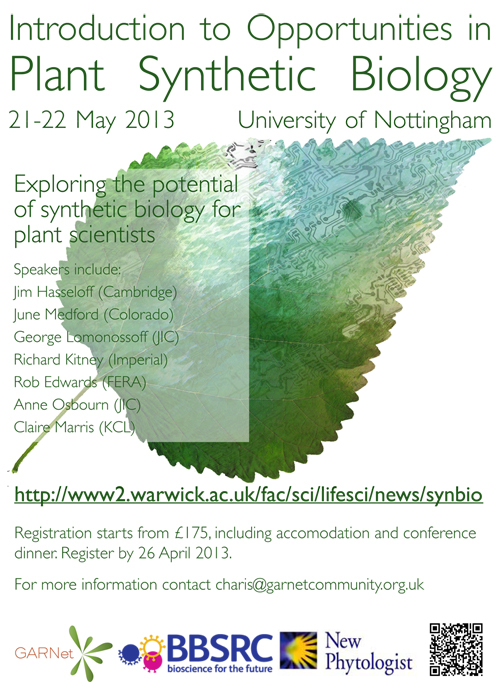Synthetic biology is a fast-growing research area both in the UK and further afield and UK policy makers and funders are taking it very seriously. In November last year, George Osborne announced a £20 million investment for Synthetic Biology and as a result Synthetic Biology is one of the few research areas in the BBSRC portfolio to receive an increase in funding. This is in addition to the numerous schemes that are already supporting Synthetic Biology (including BBSRC, EPSRC and TSB).
To make sure that UK plant researchers can make the most of these funding opportunities, GARNet is hosting a meeting to introduce the concept of Synthetic Biology and the many and varied applications of Synthetic Biology at the molecular, cell and whole plant level.
Like Systems Biology before it, Synthetic Biology can be viewed as both a tool and a scientific approach for understanding and furthering basic science and as a means of developing commercially important plant products. Synthetic Biology in plants is under-researched, but has enormous potential and it is time for UK scientists of all disciplines to explore it.
So to make sure you understand what Synthetic Biology is and how you might apply to your research area, make sure you register for An Introduction to Opportunities in Plant Synthetic Biology. For more information go to: http://www2.warwick.ac.uk/fac/sci/lifesci/news/synbio. Please note that registration fee covers the cost of accommodation and meals during the meeting
To help us promote the meeting, please print out this poster and put it up in your department. Please also forward this email to anyone from other departments you think will be interested.











